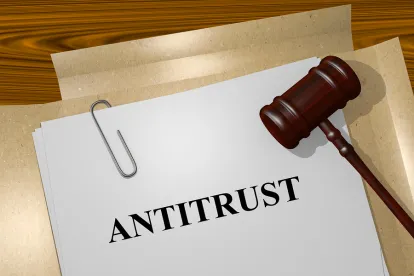For believers in free markets it is important that they operate free of “shenanigans,” Food & Drug Administration (FDA) Commissioner Stephen Hahn said during a joint workshop with the Federal Trade Commission (FTC) on March 9, 2020. The event set in motion the agencies’ joint effort to address the difficulties in biosimilar uptake – a market rife with anticompetitive practices – and to restrict dissemination of false and misleading information on biosimilar efficacy or safety.
“Shenanigans” and “whack-a-mole” became catch phrases during this day-long, stakeholder event, designed to spur inter-agency collaboration and inspire public confidence.
“We’ve seen efforts by manufacturers to delay competition for biosimilar products,” Hahn said. “And we’ve seen the publication of materials that seem designed to create uncertainty about biosimilars and discourage patients and health care providers from using them. These behaviors have the potential to put innovation at risk, erode public confidence in the product, weaken efforts to lower health costs through competition, and, ultimately, undermine advances in healthcare as potential treatments and cures are unavailable or go unrealized.”
Biologics account for a disproportionate amount in the overall spending of prescription drugs: they are 2% of the total of prescription drugs but account for 40% of the cost of prescription drugs. Biosimilars have not had the impact in the United States that they’ve had in Europe. For example, AbbVie’s Humira faced discounts as steep as 80% in some European countries while it will not be challenged by a competing biosimilar in the U.S. until 2023. Hahn said that when one generic drug is introduced to a reference small-molecule product, it reduces pricing by about 35% on average. The introduction of six generics can reduce the price by as much as 95%. Extrapolating data from generic drugs, the agencies hope to reach the same scale and approach in the biosimilar and interchangeable space.
Kicking off the program, FTC Chairman Joseph Simons’ prepared remarks were read by FTC Chief of Staff Tara Isa Koslov. The statement pointed to the FTC’s long history and experience in enforcement actions against branded drug companies engaged in anticompetitive conduct against generic drug manufacturers, and its 2013 victory in a landmark decision by the Supreme Court in FTC v. Actavis, involving an enforcement action against brand and generic drug manufacturers entering anticompetitive reverse-payment agreements (FTC v. Actavis, Inc., 2013 U.S. LEXIS 4545).
The FTC’s experience in pharmaceuticals also extends to the biologic industry. “Competition between reference biologics and biosimilars is just as important as competition between brand and generic small-molecule drugs,” the FTC statement said, and that competition “only works when consumers have reliable and truthful information.” Koslov said the FTC will monitor biologic drug maker activities that could delay competition, such as patent agreements in violation of antitrust laws. In addition, the agency will monitor activities that could impede biosimilar development, such as restricting access to samples of branded biologics.
Enforcement will be necessary.
Based on past anticompetitive conduct surrounding generic drugs, enforcement will be necessary to address the tactics employed by the manufacturers of biologics against the entry of biosimilars into the U.S. biologic market. For example, false statements from reference biologic manufacturers that cause physicians and patients to believe that biosimilars are not as safe or as effective as the reference biologic might violate both consumer protection and antitrust laws. Misleading communications, such as those that cast doubt on the quality of biosimilars, will come under closer scrutiny by the agencies. “Advertising must be truthful and not misleading,” Koslov stated, and “[a]dvertising creating an impression of clinically meaningful differences between a reference biologic and its biosimilar is likely false or misleading and therefore constitutes an unfair or deceptive practice.” An antitrust claim counters misleading advertising that creates “artificial barriers to entry and creates costs for biosimilar manufacturers,” the FTC statement said.
Naturally, there is strong incentive for the reference biologic manufacturers to discourage competition, and the enforcement agencies have jointly clarified that they will bring action against the companies whose false or misleading statements undermine public confidence about the safety and effectiveness of biosimilar products, which ultimately deters competition and the uptake of biosimilars.
Disparagement a private cause of action?
Could disparagement of biosimilars by biologic innovators give rise to private causes of action? Specifically, can disparagement constitute anticompetitive conduct?
Michael A. Carrier, a Distinguished Professor of Law at Rutgers Law School and an authority on antitrust and intellectual property law specifically regarding the pharmaceutical industry, offered insights on private causes of action. Disparagement within the antitrust framework falls under the purview of Section 2 of Sherman Act pertaining to monopolies. Carrier said monopoly power can be shown indirectly or directly. Indirectly tends to be characterized by high market share coupled with significant barriers to entry. Direct evidence includes price increases, output reductions, or maintaining higher prices. It’s clear that biologic product makers have monopoly power, Carrier said.
Addressing exclusionary conduct.
What about exclusionary conduct? Or conduct that creates or maintains monopoly power by disadvantaging and harming competitors? There are three responses to disparagement as exclusionary conduct, the Rutgers law professor said.
- First, and Professor Carrier disagrees, is there is no liability because false statements enhance competition. Carrier says this is wrong because false statements can have a significant effect on the overall market.
- Second is to presume that the exclusionary effect is de minimus. To overcome this presumption, a plaintiff must prove six factors about the falsity and materiality of the statements.
- Third is to evaluate case-by-case , which Carrier believes is the most justifiable.
Christine Simmon, Executive Director of the Biosimilars Council, explained there are multiple issues that need to be dealt with, including exclusionary contracting practices, rebate agreements, misinformation, patent abuses, and reimbursement and formulary placement policies that extends the period between FDA approval and product launch. Therefore, it is likely that the enforcers cannot regulate all bad actors.
A unique toolset.
Antitrust law can step in and bridge this gap. It can challenge anticompetitive conduct with a unique set of tools, such as injunctions, attorneys’ fees, treble damages, and citizen’s petitions. Competitive harm can be established by showing that the biosimilar manufacturers were injured and could not enter the market, that prices of biologics were not lowered, ultimately harming consumers.
For more information on this subject, see our previous posts: FTC, FDA Team Up Against Anticompetitive Activities in Biological Product Industry and Agencies’ Antitrust Suit Against Drug Maker Underscores Challenges of Bringing Biosimilars to Market. Also, download a discussion led by Joy Sidhwa with other leading attorneys on the issue, titled Getting Biosimilars to Market: Patent and Antitrust Perspectives.
Edited by Tom Hagy for MoginRubin LLP.




 />i
/>i
